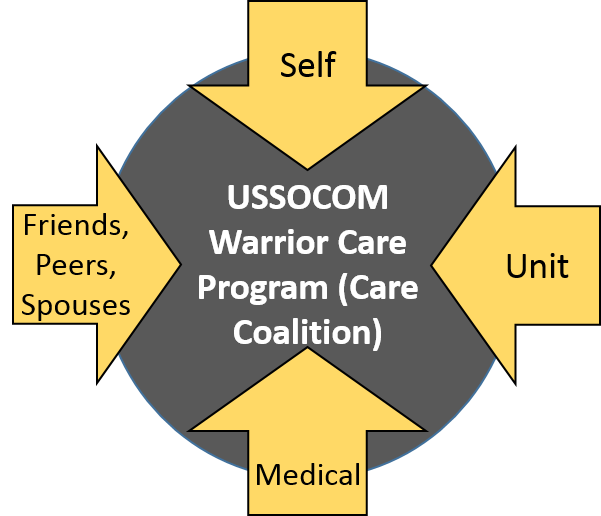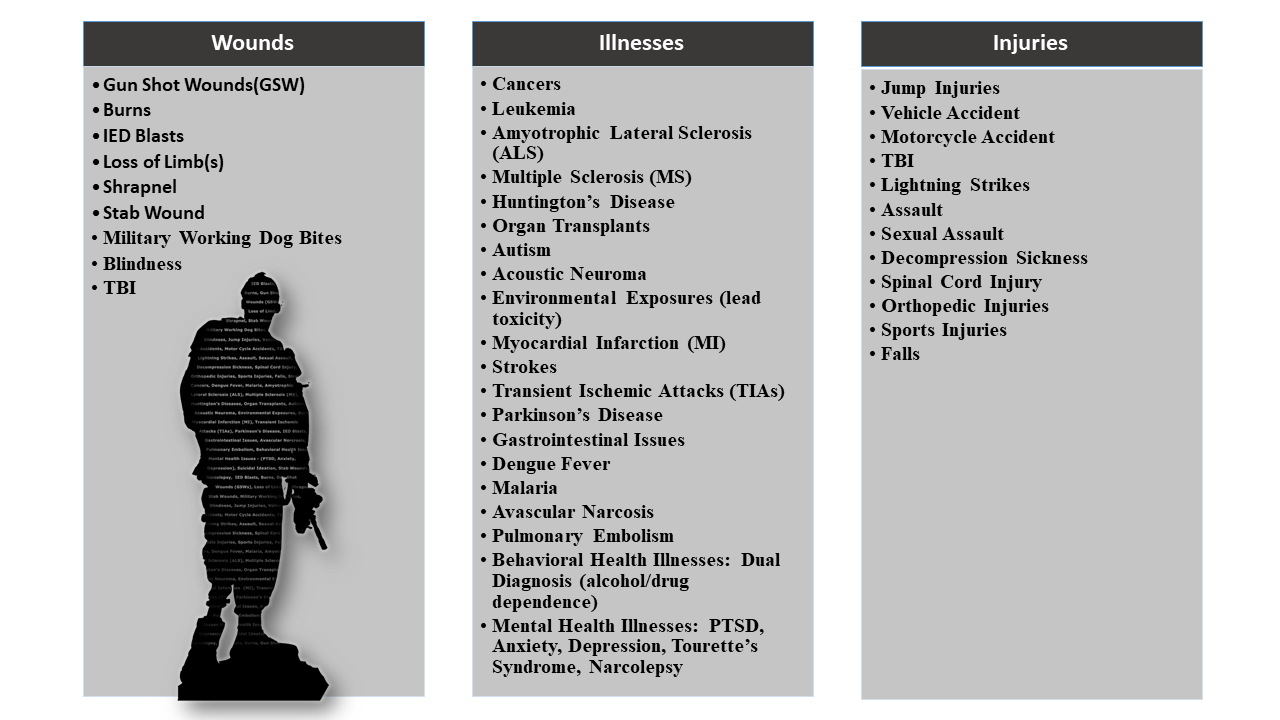Recovery Care Coordinator Referral
The following may be considerations when referring Service Members for RCC support in addition to wounds, illnesses, and injuries:
-
Has multiple and/or complex medical needs (i.e. TBI or severe PTSD)
-
Lacks a stable family environment or has complex family needs (i.e. EFMP)
-
Has been referred to the Integrated Disability Evaluation System and requires support through the process but is not at the PEB stage
How Do I Complete a Referral for Recovery Care Coordinator Support?
-
Please contact the USSOCOM Warrior Care Program (Care Coalition) using the "Contact Us" button (at the lefthand side of the page) to speak with a RCC about support
-
Be prepared to present all known medical conditions, non-medical needs, and justification for the referral
Once a Service Member is assigned, a RCC will contact the parent command to discuss the Service Member's needs and support being offered. A RCC will continue to work with the command throughout the Service Member's care.
|
Methods for Service Member inclusion into the USSOCOM Warrior Care Program (Care Coalition):
-
Casualty report – direct entry and advocate / LNO assignment
-
Identified at point of injury or in-transit – Germany, Walter Reed, Combat Theater, etc.
-
Referred by unit, medical, friends, peers, spouses, self

Examples of Qualifying Medical Conditions
***DISCLAIMER:
THIS LIST IS NOT ALL-INCLUSIVE***
The USSOCOM Warrior Care Program (Care Coalition) supports Service Members and their Families throughout their recovery and transition into Veteran status.
Through the local support of RCCs and LNOs, the USSOCOM Warrior Care Program strives to foster the Service Member's independence. The table below represents some of the wounds, illnesses and injuries that
may qualify a SOF Service Member for inclusion into the USSOCOM Warrior Care Program.

|
